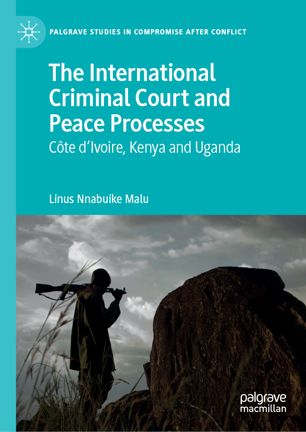

Most ebook files are in PDF format, so you can easily read them using various software such as Foxit Reader or directly on the Google Chrome browser.
Some ebook files are released by publishers in other formats such as .awz, .mobi, .epub, .fb2, etc. You may need to install specific software to read these formats on mobile/PC, such as Calibre.
Please read the tutorial at this link: https://ebookbell.com/faq
We offer FREE conversion to the popular formats you request; however, this may take some time. Therefore, right after payment, please email us, and we will try to provide the service as quickly as possible.
For some exceptional file formats or broken links (if any), please refrain from opening any disputes. Instead, email us first, and we will try to assist within a maximum of 6 hours.
EbookBell Team

0.0
0 reviewsThis book explores the extent to which the International Criminal Court (ICC) has influenced peace processes in Cȏte d’Ivoire, Kenya and Uganda. It examines how the prosecution of those who bear the greatest responsibility for crimes committed in these countries may have negatively or positively influenced the process of making peace in their wake. It is concerned with how international accountability affects post-conflict countries and what the ICC brings to peace processes. The central question addressed by the book is whether justice spurs peace in post- conflict societies or whether justice complicates the peace process. If so, how?
Relying on qualitative studies in these countries, this book comparatively analyses the impact of the interventions of the ICC in Uganda (2004), Kenya (after the 2007/2008 post-election violence), and Cȏte d’Ivoire. Its aim is to provide an evidence-based account of how the involvement of the ICC in these countries influences the processes of promoting peace. To gauge this, Malu develops an analytical framework which is based on four variables: deterrence, victims’ rights, reconciliation and accountability to the law. This book will appeal to those interested in post-conflict reconstruction, transitional justice, peace studies, conflict transformation, and international criminal law, including peace practitioners and those working in the field of international justice.